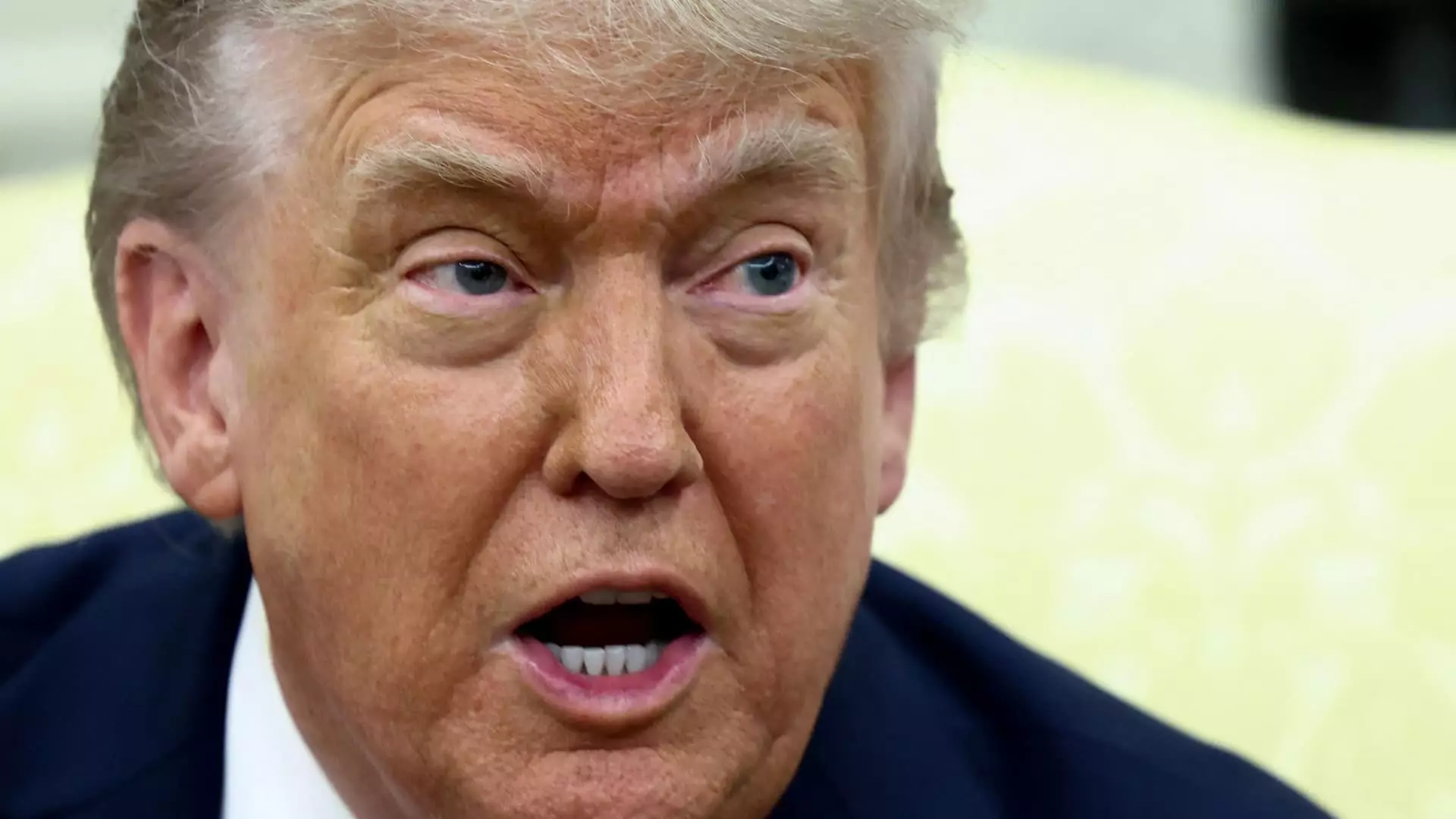When two of the most influential figures in the modern world find themselves in a heated verbal brawl, the implications stretch far beyond their personal animosities. In the latest saga between former President Donald Trump and charismatic entrepreneur Elon Musk, the remarks exchanged underscore a jarring divide not just in ideology, but also in perceptions about innovation, public interest, and the intersection of business with government. As Trump publicly reprimands Musk for his criticisms regarding a contentious tax bill that would eliminate electric vehicle (EV) incentives, the absence of a coherent vision for a sustainable future becomes painfully clear.
Trump’s comments reveal much about his approach to governance—an often combative style entrenched in ego and confrontation rather than collaboration. By chiding Musk, whom he once called a crucial ally, Trump reflects a common pitfall of political figures unable to accept criticism, especially from those they once courted. Instead of engaging in constructive dialogue, he perceives Musk’s backlash as a personal affront, revealing an immaturity that undermines the seriousness of policy debates.
Musk’s Frustration: A Call for Fair Representation
Elon Musk’s response to Trump encapsulates the frustration felt by many within the tech community. “Whatever,” he wrote dismissively on his social media platform X, but the underlying message was anything but trivial. Musk called the proposed bill a “disgusting abomination.” This characterization sheds light on a critical aspect of modern governance—how public policy risks alienating innovators who are pivotal to addressing climate change challenges. Musk’s discontent was not merely about lost subsidies; it encapsulates a broader sentiment that big money interests often overshadow genuine solutions.
Indeed, Musk’s mention of “MOUNTAIN of DISGUSTING PORK” highlights a particularly poignant issue in U.S. politics: the tendency for legislation to cater to special interests at the expense of sound fiscal policy. By keeping out subsidies for traditional energy while snipping away at the strings supporting burgeoning green technologies, Trump is not only jeopardizing his credibility but also diminishing the potential for America’s economic revitalization through sustainable practices.
Political Gamesmanship vs. Real Solutions
Trump’s statement, “I’d rather have him criticize me than the bill, because the bill is incredible,” raises serious questions about what constitutes an “incredible” piece of legislation. Is it truly incredible if it panders to particular interests or fails to address pressing issues such as environmental sustainability? Such rhetoric is not merely dismissive; it undermines the urgency of real solutions needed in the face of climate threats. By categorically rejecting Musk’s criticism, Trump aligns himself with a past era that resists necessary reform in favor of incumbent powers.
Furthermore, the president’s withdrawal of Musk’s favored nominee for NASA, where innovation must reign supreme, seems less about creating an effective administrative body and more reflective of partisan pride. Labeling Jared Isaacman a “totally Democrat” candidate isn’t just a transparent attempt to solidify political control; it signifies a troubling stranglehold on technological governance where scientific advancement is sacrificed at the altar of political allegiance.
The Bigger Picture: A Call for a Better Tomorrow
The ongoing feud offers a lens into a more considerable dilemma: the struggle for balance between innovation, politics, and public welfare in an increasingly divided nation. Just as Musk plays a critical role in pushing boundaries in electric vehicles and space exploration, the political landscape demands leaders who can think beyond self-interest and embrace a collaborative spirit to navigate the complexities of climate change, economic potential, and social equity.
As these two titans continue their contentious dialogue, we are left to ponder the lessons that lie ahead. Will leaders prioritize common-sense solutions over ego? As public sentiment turns increasingly toward a demand for sustainable growth, the interactions between figures like Trump and Musk remind us that meaningful governance requires humility, dialogue, and, most importantly, a commitment to serve the greater good rather than personal vendettas.


Leave a Reply